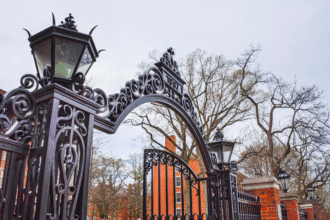Grammy-winning rapper Young Thug, whose real name is Jeffrey Lamar Williams, was released Thursday night after serving more than 900 days in prison on charges related to drug, gun, and gang activities. This was a startling development. His release concludes the multi-defendant case that has drawn national attention since May 2022 and is Georgia’s longest-ever criminal trial. A difficult chapter in the musician’s life ended when Superior Court Judge Paige Whitaker sentenced him to time served plus a 15-year probation.
- Why Did Prosecutors Allege Gang Ties and Racketeering?
- How Did Young Thug Plead for Forgiveness?
- Why Was His Sentence Commuted Amid Plea Deal Failures?
- What Are the Conditions of His Probation and Community Service?
- What Made This Case So Contentious and Unusual?
- What Is the Status of His Co-Defendants and Remaining Trials?
“I take full responsibility for my crimes, for my charges,” Mr. Williams declared during the court hearing. “To everybody that has got something to do with this situation, I want to say sorry.”
Why Did Prosecutors Allege Gang Ties and Racketeering?
In May 2022, Young Thug and his colleagues were first the target of prosecutors who claimed that the rapper’s company, Young Stoner Life (YSL) Records, was a front for the gang known as Young Slime Life. They asserted that this organization was accountable for “75 to 80% of violent crime” in Atlanta. The rapper’s charges, which shocked the public and alarmed fans everywhere, included charges of murder, armed robbery, and carjacking.
There was much controversy around the first indictment, which included Young Thug and 27 associates. The prosecution’s heavy reliance on YSL’s rap lyrics as proof sparked criticism for what some saw as violating free speech. Many contended that these accusations unjustly made a Black-dominated art form illegal.
How Did Young Thug Plead for Forgiveness?
Young Thug said in his courtroom statement that he was “a good guy with a good heart” who became involved in criminal activities because he wanted to be “nice or cool.” The rapper considered his notoriety and its unexpected repercussions:
“And I understand that you can’t be that way when you reach a certain height because it could end badly and it could fall on you.”
This revelation highlighted the complicated circumstances surrounding his participation in the music label and the trial events.
Why Was His Sentence Commuted Amid Plea Deal Failures?
Prosecutors first suggested a severe 45-year sentence, which included 25 years in prison; however, plea talks with the rapper’s attorney broke down. In the end, Judge Paige Whitaker set a 15-year probationary period as a requirement for his release and shortened his sentence to the time he had previously served.
In her final remarks, Judge Whitaker counseled the rapper, “I want you to try to be more of the solution and less of the problem.”
Young Thug agreed to a plea bargain on one gang charge, three drug charges, and two gun charges. He also entered a no-contest plea on allegations of gang leadership and violating Georgia’s Racketeer Influenced and Corrupt Organizations (RICO) Act. By entering a no-contest plea, he chose not to contest these allegations, thereby accepting responsibility without publicly confessing wrongdoing.
What Are the Conditions of His Probation and Community Service?
Judge Whitaker imposed stringent requirements on Young Thug’s freedom. During his 15-year probation, he must stay out of the metropolitan Atlanta area for the first ten years, unless there are exceptional circumstances, perform 100 hours of community service, and refrain from contacting gang members or former co-defendants. He must host anti-gang and anti-gun talks four times a year, and he is allowed to attend weddings, funerals, and other events.
What Made This Case So Contentious and Unusual?
Numerous setbacks plagued the protracted trial, including courtroom disruptions, demands for a mistrial, and delays that caused the jury selection process alone to take almost ten months, beginning in January 2023. The case saw another major setback in July when Mr. Williams’s legal team accused Fulton County Superior Court Judge Ural Glanville of judicial misconduct and asked for a recusal. The lawyers claimed that Judge Glanville attempted to coerce a key witness into testifying during an “improper” private conference with prosecutors and the witness on June 10.
There were other abnormalities in the trial as well. In June, Mr. Williams’s principal lawyer, Brian Steel, was found guilty of criminal contempt for failing to reveal where he learned of the judge’s purported private meeting. Another layer of controversy was added when a Fulton County deputy was detained during the proceedings on suspicion of trying to bring contraband to a defendant.
In another strange instance, a hacker shouted “Free Thug!” to support the rapper after breaking into the court’s Zoom account.
What Is the Status of His Co-Defendants and Remaining Trials?
Several of Young Thug’s co-defendants in the YSL case chose to enter plea agreements as his case came to a finish, and one defendant had charges against him dropped after being found guilty of unrelated murder. Only six of the initial 28 accused made it to trial. Shannon Stillwell and Deamonte Kendrick are the only defendants awaiting trial after three more accepted plea agreements this week.
Now that Young Thug has been freed and the case is ending, this trial is among the most well-known and contentious court cases in recent Georgia history.







